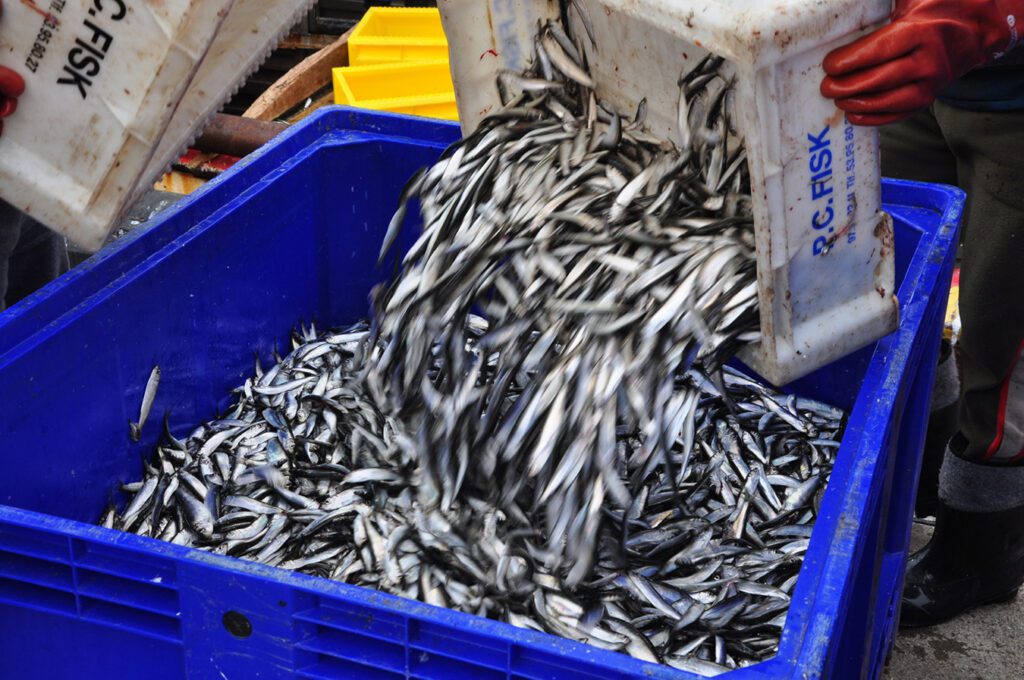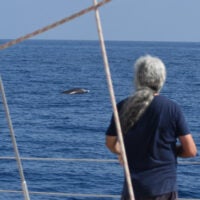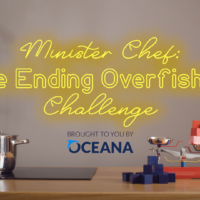Paving the way for low-impact fisheries
EU countries should reduce the environmental impact of their fisheries by adopting a roadmap towards carbon neutrality in the sector and increasing quotas for low-impact operators.
SHARE TO SHOW YOUR SUPPORT:
Defending the EU’s Common Fisheries Policy
The CFP is the framework regulation for the management of EU fisheries, with the purpose of ensuring that fishing activities are environmentally, economically, and socially sustainable.
SHARE TO SHOW YOUR SUPPORT:
Sustainable Fisheries
Fishing is one of the greatest threats to our ocean, impacting the status of fish populations and bycatch species, as well as the habitats that marine life depends on. Around 30% of North-East Atlantic and 80% of Mediterranean fish stocks are subject to overfishing. Strong, science-based regulation has been shown to allow stocks to recover, engender higher yields and provide substantial social, economic, and ecological benefits. Oceana works to ensure that fishing ceases to be a threat to our ocean and becomes a truly sustainable activity.

Most of Europe’s fish populations are either overfished, or fished to their maximum sustainable yield (MSY).
Setting and enforcing science-based limits to govern how much fish can be taken out of the seas has been shown, time and again, to allow fish populations to remain healthy and, in many cases, dramatically increase in size. As a result of implementation of the EU’s Common Fisheries Policy (CFP), fishing mortality in the European Atlantic has fallen and the number of stocks exploited at sustainable (MSY) levels increased from 16 in 2005 to 54 in 2020.
This improvement shows that firm regulation, based on scientific advice, can deliver ecological and, with it, socio-economic results.
Oceana campaigns to defend progress made under the CFP and ensure European fish stocks are rebuilt, by advocating for science-based fishing limits and other fisheries management measures.
The EU-UK Trade and Cooperation Agreement now regulates the management of more than 75 shared fish stocks, as well as the fishing rights of the EU fleet in UK waters, and vice versa. A recent audit by Oceana found that 6 out of 10 UK fish stocks, including economically important cod, herring and scallops, are being overfished and/or are in a critical state. Oceana is campaigning to ensure that new fisheries policies developed as a result of the UK’s withdrawal from the EU maintain commercial stocks, including shared stocks, at sustainable levels.
Accomplishments
December, 2023
EU Sets Sustainable Catch Limits to Help Recover Fish Populations
The European Union set more sustainable catch limits for the fisheries it manages exclusively in the Northeast Atlantic Ocean and the Mediterranean Sea for 2024. For Atlantic fisheries, 87% of the catch limits were set in line with scientific recommendations, nearly all the current catch by weight. Also this year, in the Western Mediterranean, fishing effort by destructive trawlers was reduced by 9.5% and catch limits were lowered for various deep-sea shrimps. Oceana and our allies campaigned for these changes across the EU and helped drive public support and engagement. Oceana will continue to campaign for sustainable fisheries management in EU waters.
February, 2023
Oceana Defends EU Common Fisheries Policy from Attack
Oceana and its allies defended the European Union’s main fisheries law from attacks, including attempts to overturn the discard ban, which was the subject of strong lobbying by the industrial fishing sector. Adopted in 2013, the Common Fisheries Policy has led EU fisheries to become increasingly more sustainable by adhering to principles such as science-based catch limits and bycatch reduction. The European Commission’s recent assessment of the law showed that the number of sustainably harvested fish stocks has increased from only five in 2009 to over 60 in 2022. Oceana continues to campaign for full implementation and enforcement of the law
Reports & Factsheets
Press Releases
May 6, 2025
April 15, 2025
Blog

April 14, 2025

January 17, 2025

November 29, 2021
Reports
Around the Web
Learn More

